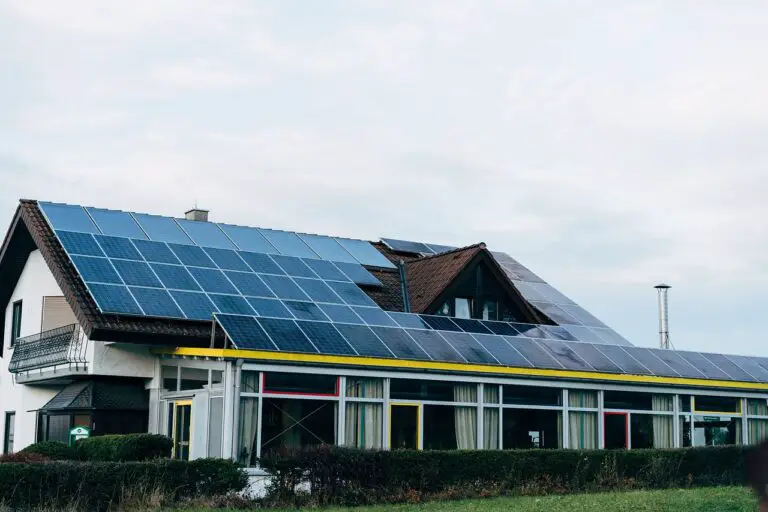New Regulations Affecting Solar Panel Loans
Recent shifts in regulations have significantly impacted the landscape of loans for solar panels. Understanding these changes is crucial for homeowners and businesses alike. This article explores the new regulations affecting solar panel loans, highlighting key updates and their implications for green home improvement loans.
Overview of Recent Regulatory Changes
Introduction of New Eligibility Criteria
New regulations have introduced stricter eligibility criteria for loans for solar panels. Homeowners must now meet specific requirements to qualify, including higher credit scores and proof of income stability. These changes aim to ensure that borrowers have the financial capability to manage the costs associated with solar panel installations. For instance, lenders may now require a minimum credit score of 700, up from the previous threshold of 650.
Increased Focus on Environmental Standards
Regulatory bodies are placing greater emphasis on environmental standards. Solar panel installations must now comply with more stringent environmental guidelines to qualify for loans. This shift ensures that financed projects meet high sustainability and efficiency standards, promoting overall environmental benefits. As a result, homeowners and businesses seeking green home improvement loans need to verify that their projects align with these updated standards.
Expansion of Incentive Programs
The new regulations also include an expansion of incentive programs. Government and private sector incentives for solar panel installations have increased, offering additional benefits to those who finance their projects. These incentives often include tax credits, rebates, and reduced interest rates. By taking advantage of these expanded programs, borrowers can significantly reduce their overall costs.
Impact on Green Home Improvement Loans
Changes in Loan Terms and Conditions
Green home improvement loans are also affected by the recent regulatory changes. Lenders now offer revised terms and conditions that reflect the new eligibility criteria and environmental standards. These changes can include adjusted interest rates, modified repayment periods, and updated loan limits. It is essential for borrowers to review these terms carefully to ensure they align with their financial goals and project needs.
Enhanced Transparency and Disclosure Requirements
The latest regulations mandate increased transparency in loan agreements. Lenders must now provide detailed disclosures regarding loan terms, fees, and the environmental impact of financed projects. This enhanced transparency helps borrowers make informed decisions and compare different loan options more effectively. Homeowners should look for clear, comprehensive information when considering loans for solar panels.
Stricter Compliance Monitoring
To ensure adherence to the new regulations, compliance monitoring has become more stringent. Lenders are required to regularly audit financed projects to verify that they meet the updated environmental standards. Non-compliance can lead to penalties or loan forfeiture, making it crucial for borrowers to ensure their projects remain within regulatory guidelines throughout the loan term.
How to Navigate the New Regulations
Assessing Your Financial Situation
Before applying for a loan for solar panels, it is advisable to assess your financial situation thoroughly. This assessment includes evaluating your credit score, income stability, and overall financial health. By understanding your financial standing, you can better navigate the new eligibility requirements and select a loan that fits your needs.
Researching Loan Options
Given the changes in loan terms and conditions, researching different loan options is more important than ever. Compare offers from various lenders to find the most favorable terms. Look for loans that provide the best interest rates, repayment options, and incentives. Websites like Energy.gov and NABERS offer valuable information on available solar incentives and loan programs.
Consulting with Financial Experts
Consulting with financial experts or advisors can provide valuable insights into the new regulations and their implications for your green home improvement loans. Experts can help you navigate the complexities of loan applications, understand regulatory requirements, and make informed decisions. Their expertise ensures that you are well-prepared to meet the new standards and secure the best financing options.
Future Outlook and Trends
Potential Regulatory Developments
The regulatory landscape for solar panel loans is likely to continue evolving. Future developments may include further tightening of eligibility criteria, changes in incentive programs, or new environmental standards. Staying informed about potential changes can help you adapt to new requirements and take advantage of emerging opportunities in the solar financing sector.
Advancements in Solar Technology
Advancements in solar technology could influence future regulations and loan options. As technology evolves, new products and innovations may become eligible for financing. Keeping abreast of technological advancements allows borrowers to consider the latest options when applying for loans and ensures that their projects benefit from the most current developments.
Impact on Renewable Energy Goals
The new regulations align with broader goals of increasing renewable energy adoption and reducing carbon emissions. By supporting the implementation of solar panels through updated loan programs, these regulations contribute to achieving national and global renewable energy targets. Homeowners and businesses investing in solar energy are playing a crucial role in advancing these objectives.
Conclusion
The recent changes in regulations affecting loans for solar panels and green home improvement loans present both challenges and opportunities. Understanding the new eligibility criteria, loan terms, and compliance requirements is essential for making informed decisions and securing financing. By staying informed and consulting with experts, you can effectively navigate these regulations and benefit from the expanded incentives and programs available.
For more detailed information on solar panel financing and regulations, visit Energy.gov and NABERS.







